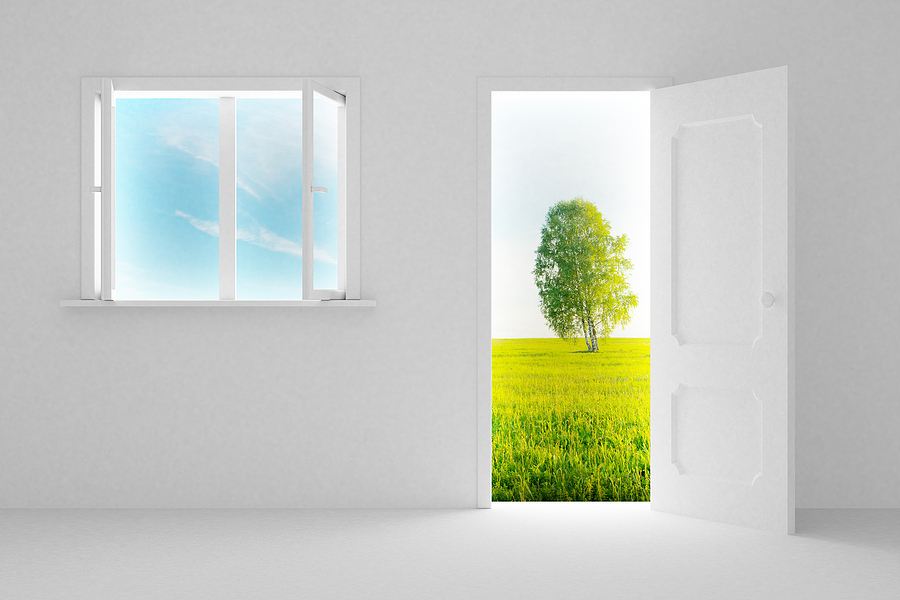Are you a beach person or do you prefer the mountains? Whichever you fancy, spending time outdoors in the fresh air and sunshine (even in your backyard or a local park) may be good for more than just the soul.
Fresh air = Better sleep?
A study about sleep conducted by researchers at the University of Illinois and published in the journal Preventive Medicine examined data from the Centers for Disease Control and Prevention’s (CDC’s) Behavioral Risk Factor Surveillance System (BRFSS). The researchers found that for all 255,171 adults whose data was examined, there was a positive correlation between exposure to what they call “nearby natural amenities” (e.g., parks, beaches, mountains) and sleep quality. This was especially true for the males in the study and for both men and women who were 65 and older. Similarly, the study discovered a link between poor sleep quality and having fewer “natural amenities” in a close proximity.
The researchers theorize that adults who live near outdoor attractions like parks or beaches have higher levels of physical activity, a key ingredient for good quality sleep. Findings from the study also suggest that seniors who struggle with sleep difficulties could benefit from increased exposure to the great outdoors.
The study’s senior author, Prof. Diana Grigsby-Toussaint, noted, “…our results provide an incentive for nursing homes and communities with many retired residents to design buildings with more lighting, create nature trails and dedicated garden spaces, and provide safe outdoor areas that encourage outdoor activity for men and women.”
>> Related: Over the River and Through the Woods to Grandma’s Retirement Community
Senior life tips: Why sleep is so important
Older adults need about the same amount of sleep as younger adults– up to nine hours per night. But for seniors over 65, studies have found that 13 percent of men and 36 percent of women take more than half an hour to fall asleep and often have trouble sleeping through the night. Changes in sleep patterns, decreases in the amount of melatonin produced by the aging body, as well as other age-related health conditions, may be contributing factors to these sleep troubles.
Yet numerous studies have emphasized the critical importance of good quality sleep in older adults. A few reasons why it is essential that seniors get enough Zzzs:
- Older adults who get good nighttime sleep are less likely to have depression, memory problems, daytime sleepiness, nighttime falls, or use pharmaceutical sleep aids.
- The brain removes waste products during sleep; a build-up of these wastes has been tied to neurodegenerative diseases like Alzheimer’s disease and Parkinson’s.
- For people with obstructive sleep apnea, breathing periodically stops for as long as 10-60 seconds during sleep. Untreated sleep apnea increases a person’s risk for developing high blood pressure, cardiovascular disease, headaches, memory loss, and depression.
- Poor-quality or insufficient sleep in seniors has also been associated with other serious conditions including diabetes, weight gain, and breast cancer in women.
- Inadequate sleep has been associated with an overall lower quality of life for seniors.
Tips for improving nighttime sleep for seniors
In addition to getting more physical activity in the fresh air and sunshine, the top keys to sleep as suggested by the University of Illinois study, here are several other ways that seniors can increase the number of hours of good-quality nighttime sleep they are getting.
- Cut back on caffeine, alcohol, and nicotine, especially in the afternoon and evening.
- Avoid large meals (especially with spicy foods) as well as excessive fluid intake in the hours before bedtime.
- Reduce or eliminate daytime napping.
- Seek professional treatment for any sleep disorders (for example insomnia, restless legs syndrome, sleep apnea, snoring, etc.).
- Lighted devices (TVs, computers, smartphones, etc.) are very simulating to the brain–and thus bad for unwinding and creating natural drowsiness–so shut them off at least an hour before bedtime.
- Create a regular bedtime schedule and routine; this will subconsciously alert your body that it is time to begin relaxing and preparing for sleep.
- Ensure your bedroom is sufficiently dark; use a sleep mask, room-darkening curtains, or shades if necessary.
- Eliminate extraneous noise from your sleep environment; consider running a fan or sound machine to create “white noise” to block out other sounds.
- If your partner snores, encourage them to seek treatment–it will improve quality of life for both of you!
>> Related: A Good Night’s Sleep from the National Institute on Aging

FREE Detailed Profile Reports on CCRCs/Life Plan Communities
Search Communities






